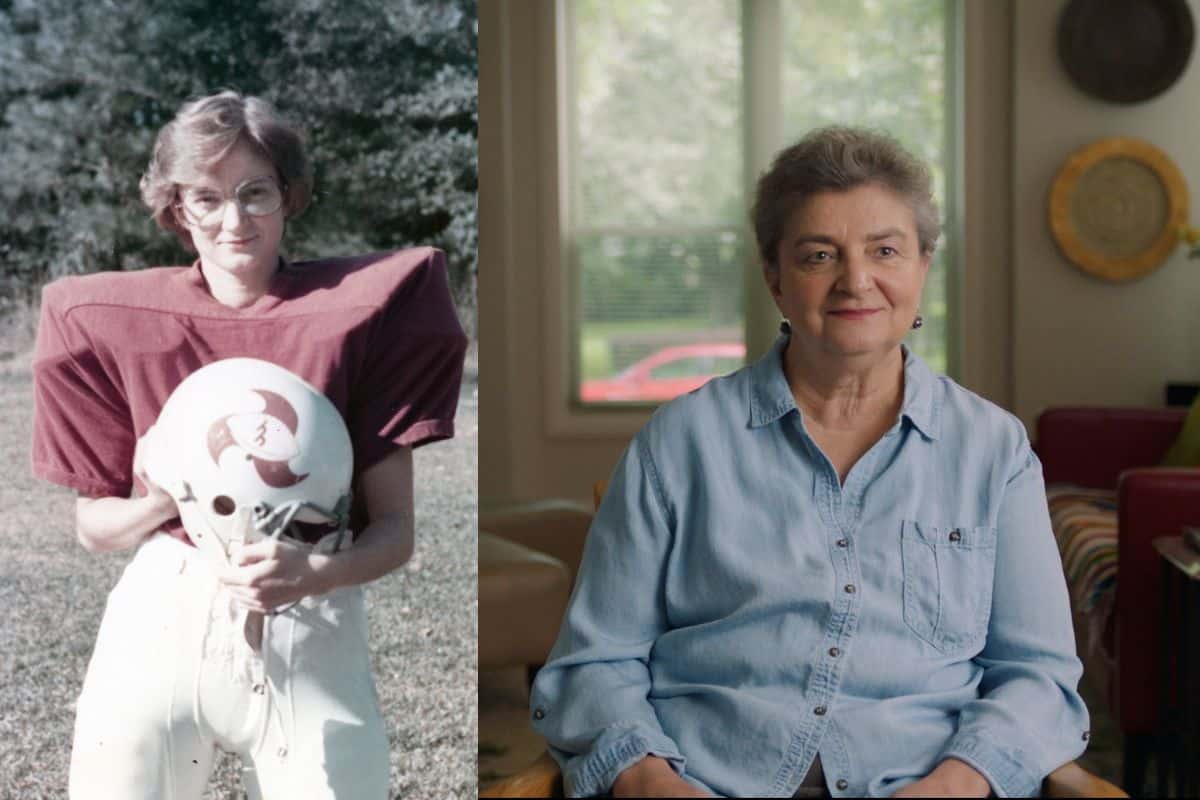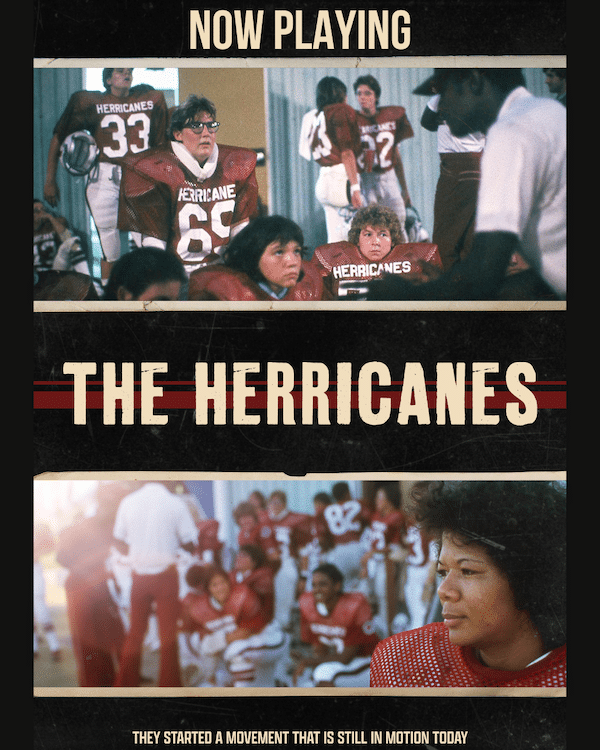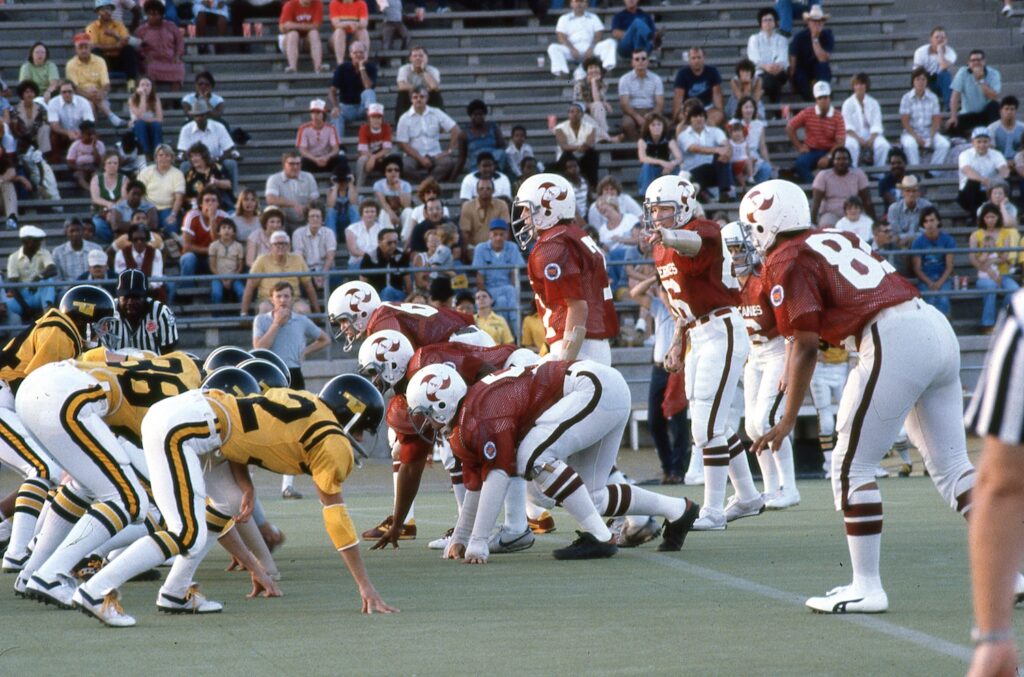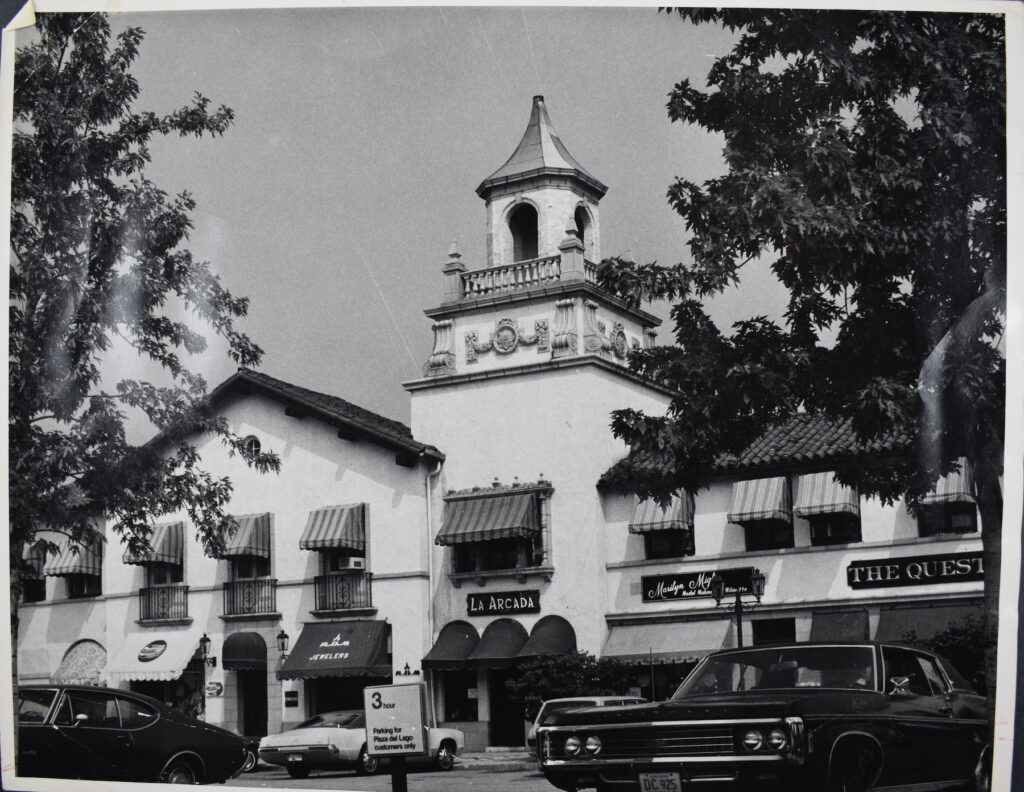
Story of women’s football and the Herricanes ready for primetime in Highland Park
Documentary features New Trier East grad whose daughter directed film
Chicago-born artist Basia Haszlakiewicz discovered her love for football around the time that she began high school at New Trier East. As a member of the 1971 graduating class, she often graced the stands with her fellow students to cheer on the team.
But she never considered that one day, in the near future, she would bridge the gap between observer and player as a member of the Houston Herricanes, a team that was part of the first women’s full tackle football league.
From Saturday-Thursday, Dec. 7-12, Highland Park’s Wayfarer Theater will hold a special screening of “The Herricanes,” a documentary film about the team, the struggles the players endured and their passion and resilience. The film, which features Haszlakiewicz, delves, too, into the history of women in sports, namely football, thanks to the 1972 enactment of Title IX to prohibit sex-based discrimination.
Haszlakiewicz is set to be in attendance for a special screening on Saturday, Dec. 7, that will be followed by a Q&A-style talkback, and tickets to the event can be purchased online.

Olivia Kuan, Haszlakiewicz’s daughter, directed the film and was inspired to pursue the idea based on her upbringing.
“I grew up in a world where women play football, and it wasn’t until later in life that I realized that no one else grew up in that world — in fact, most people were pretty resistant to the idea that women could play football,” Kuan told The Record. “Now is a really apt time to tell (this story) because I feel like we are in kind of a third wave feminism movement, and increasing visibility for women participating in anything that’s previously considered male-dominated just breaks down preconceptions that women are not able to do certain things, or shouldn’t be able to do certain things or perhaps these are things that people have never considered that they had not given women the opportunity to do.”
She continued, “The further we went along, the more it became clear that it is my story as much as it is her story or (the team’s) story because it is really the story of all women who were in male-dominated fields or participate in male-dominated fields.”
For her part, when first approached by her daughter with the film idea, Haszlakiewicz said it seemed like a pipe dream.
Haszlakiewicz recalled to The Record what one of the interviewed team members had said to Kuan: “I can’t believe you even care.” In many ways, that statement echoed Haszlakiewicz’s own sentiments: Who would care? She could recall how difficult it was to garner new recruits or so much as an audience for the Herricanes’ games.
OK, we got some credit for being the trailblazers, that’s real nice, but what’s very gratifying is that we’re not the last.”
Basia Haszlakiewicz, on people’s recognition of women football players
Though Kuan wasn’t pushy about it, Haszlakiewicz could tell the film idea meant a lot to her daughter, especially as she asked Kuan what she would want for Christmas, and Kuan said she wanted her mom to help her find her team members, with whom Haszlakiewicz had lost touch.
So, their journey began in 2019 — a time in which their relationship evolved beyond the special bond of mother-daughter to also include collaborators.
It took six months of reaching out to phone numbers they weren’t sure would work, garnering stories and building trust before Kuan felt they had enough information to begin filming.
“During the 1970s, the media the Herricanes did receive was usually derogatory and condescending, and they developed a bad taste in their mouths for media coverage because of the way that they were treated by the press,” Kuan said. “So, when I came along, although it was quite a bit later, they still held onto that nervousness, and were definitely very hesitant at first.
“A few players didn’t call me back at first, a few people needed to talk to me several times before deciding to go through with it. There was one player who played for the Oklahoma City Dolls, which was the Houston Herricanes’ rival team, and when I talked to her, she told me later that she was responsive to the fact that I’d said I wanted to preserve this history before it was lost.”

After a couple of years of pandemic-related delays, the film premiered at South by Southwest and has been shown at festivals nationwide.
Haszlakiewicz said she hopes that new audiences, such as those who attend the upcoming screening in Highland Park, can develop a fresh understanding of women’s football and broaden their horizons.
“I think [people] will be very surprised to learn that there are now hundreds of women’s football teams across this country and across the world,” she said. “I think they’ll just be amazed. People still don’t get it that women play football. And I want people to get used to it, accustomed to it and acknowledge it. OK, we got some credit for being the trailblazers, that’s real nice, but what’s very gratifying is that we’re not the last.”
The Record is a nonprofit, nonpartisan community newsroom that relies on reader support to fuel its independent local journalism.
Subscribe to The Record to fund responsible news coverage for your community.
Already a subscriber? You can make a tax-deductible donation at any time.

Zoe Engels
Zoe Engels (she/her) is a writer and translator, currently working on a book project, from Chicagoland and now based in New York City. She holds a master's degree in creative nonfiction writing and translation (Spanish, Russian) from Columbia University and a bachelor's in English and international affairs from Washington University in St. Louis.


